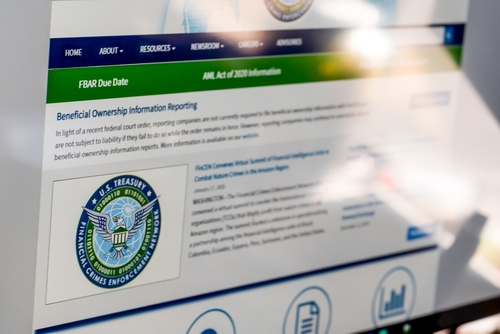
Dear Clients and Friends,
Below are highlights of key regulatory updates, proposed legislation, and enforcement actions in the field of international trade regulation during the second quarter of 2025, both in Israel and internationally. These developments may significantly impact compliance requirements for companies operating in Israel and globally.
Regulatory Updates | Proposed Regulation | Enforcement Updates | Judicial Decisions
REGULATORY UPDATES
US Commerce Department Rescinds Previous Administration’s AI Diffusion Rule and Strengthens Chip-Related Controls
On May 13, 2025, the Bureau of Industry & Security (BIS) of the US Department of Commerce announced the rescission of the Biden Administration’s AI Diffusion Rule, which was issued in January 2025. This rule had imposed stringent controls on advanced computing chips, including quotas on the export of such chips to foreign countries. More detailed information regarding the AI Diffusion Rule can be found in our previous client updates.
Along with rescinding the rule, BIS issued three comprehensive guidance documents further strengthening existing controls on the export and use of advanced computing chips.
- Risks Associated with Chinese Advanced Computing Chips: BIS issued guidance clarifying its position that the use of advanced-computing ICs (ECCN 3A090) developed or produced by entities connected to ‘D:5 Countries’, including China, may violate U.S. export controls. BIS believes these chips are likely subject to the Export Administration Regulations (EAR) due to their development involving U.S. technology or software, and were likely produced in violation of the EAR due to the involvement of certain restricted entities or the absence of necessary licenses. BIS emphasized its prohibition on the sale, export, purchase, and use of items produced or developed in violation of the EAR, under EAR Section 736.2(b)(10), known as ‘General Prohibition 10’ or ‘GP10’. While the guidance offers general instructions, it also lists specific chips presumed to have violated GP10. Accordingly, BIS advises companies to conduct comprehensive due diligence and verify the compliance status of their suppliers before using or otherwise engaging with such chips.
- Guidance on Using Advanced Computing Chips and other Commodities Used to Train AI Models: BIS released detailed guidance clarifying that exporting, reexporting, or transferring advanced computing ICs and related commodities for training AI models intended for military-intelligence or weapons of mass destruction (WMD) applications in Country Group D:5 nations (including China) or Macau may require special export authorization under the EAR. Similarly, activities such as providing support or services for AI model training with knowledge of such end uses are also subject to these controls.
- Guidance on Diversion of Advanced Computing Chips: BIS provided practical guidance to help industry recognize and prevent illegal diversion schemes involving advanced computing ICs and commodities containing such ICs. BIS updated its guidance regarding red flags and due diligence actions, stressing the importance of verifying end-user information and exercising heightened caution in transactions involving parties located in or affiliated with Country Group D:5 nations. Companies are encouraged to integrate these considerations into their compliance programs to mitigate diversion risks.
Significant Easing of International Restrictions on Syria
In recent months, there have been significant changes in US, UK, and EU sanctions against Syria. On May 23, 2025, the US State Department announced a 180-day waiver of the Caesar Civilian Protection Act as well as a General License under the Office of Foreign Assets Control (OFAC), and on June 30, the President issued an Executive Order “Providing for the Revocation of Syria Sanctions”. These measures effectively lifting most U.S. sanctions on Syria. It is important to note that certain sanctions, such as those pertaining to WMDs, Global Terrorism, and Iran, remain in force with respect to Syria, and the US International Traffic in Arms Regulations (ITAR) and Export Administration Regulations (EAR) have yet to be amended. These developments coincide with the administration’s announcement of a gradual easing policy and the ultimate cessation of sanctions on Syria.
Concurrently, on May 28, 2025, the EU announced it had adopted legislation to lift most sanctions on Syria and removed certain Syrian entities from its restricted lists. In April, the UK also announced it had loosened certain Syria-related sanctions. The Syrian sanctions landscape is still evolving and is likely to depend on the policies of the new Syrian regime.
Israel’s Trading with Enemy Ordinance still lists Syria as an enemy state, and thereby still widely prohibits engagements with Syria absent a special permit
U.S. to Re-impose Trade Prohibitions on Sudan
On June 27, 2025, the US State Department published its determination on a series of measures to be implemented against Sudan, following its announcement in May 2025 that the U.S. had determined Sudan used chemical weapons during 2024. Among other things, these measures impose significant new prohibitions on the export of arms and certain dual-use items controlled under the U.S. International Traffic in Arms Regulations (ITAR) and the Export Administration Regulations (EAR), including the termination of existing licenses. In 2017, the US had removed numerous sanctions imposed on Sudan, and the current decision represents a significant policy shift.
UK and EU Expand Russia Related Sanctions
In April 2025, the U.K. updated its Russia-related trade restrictions, further tightening controls on the export and transfer of certain technologies and software, including various types of business enterprise software. Concurrently, the U.K’s Office of Trade Sanctions Implementation (OTSI) published guidance on complying with Russia-related sanctions on technologies and software. Following this, in May 2025, the UK announced 100 new sanctions against Russian and Russia-related entities.
In addition, on June 27, 2025, the Foreign, Commonwealth and Development Office (FCDO) issued guidance to non-UK businesses to prevent sanctions circumvention, particularly in the context of the Russia-Ukraine conflict. The primary reason these businesses may become subject to UK sanctions is engaging in activities designed to circumvent existing sanctions, even if they are not based in the UK. The FCDO has chosen to focus on several countries identified as “sanctions circumvention hubs,” providing specific guidance to businesses operating there, including Armenia, Georgia, Kazakhstan, Kyrgyzstan, and Uzbekistan. The objective is to increase awareness in these markets about the risks associated with circumvention and to help local businesses understand sanctions regulations.
Similarly, on May 20, 2025, the EU adopted its 17th Sanctions Package against Russia. As part of its enhanced enforcement efforts, the EU designated individuals and entities involved in assisting sanctions evasion, numerous Russian financial institutions, as well as foreign companies providing components for the Russian military, including one Israeli company.
In addition, on June 10, 2025, the EU began preparing its 18th Sanctions Package against Russia. The new package proposes, among other measures, extensive transaction bans, adding 77 shadow fleet vessels to the ban list, expanding transaction bans to 22 Russian banks, and introducing new authority to list third-country entities involved in sanctions circumvention. To reduce the EU’s dependency on Russian agricultural goods, the EU has also imposed tariffs of 50 percent and 6.5 percent on Russian and Belarusian agricultural goods, respectively.
EU Launches Sanctions Helpdesk for SMEs
On May 14, 2025, the European Commission launched the EU Sanctions Helpdesk for Small and Medium-sized Enterprises (SMEs). This innovative service is designed to directly support SMEs in complying with European Union (EU) sanctions, aiming to reduce transaction costs and strengthen confidence in financial institutions. The Helpdesk provides a dedicated website with comprehensive information and resources, direct support for sanctions and due diligence queries, information sessions, professional trainings, seminars, workshops, and newsletters with relevant updates.
Clarification from the European Commission – Incoterms Do Not Exempt Operators from Sanctions Compliance
On May 28, 2025, the European Commission issued a comprehensive factsheet clarifying that EU operators cannot use Incoterms such as Ex Works (EXW) to circumvent their obligations under EU sanctions. Under EXW terms, the buyer typically assumes most responsibilities for transport and delivery from the moment they collect the goods within the EU. However, EU sanctions law unequivocally mandates that EU operators comply with sanctions regardless of contractual arrangements. The Commission emphasized that private law agreements, including those utilizing Incoterms, cannot override these sanctions-related obligations. Therefore, using the EXW rule does not exempt an exporter or seller from their duty to comply with EU sanctions.
Australia Strengthens Export Control Regime: Defining New Criminal Offenses
Australia has defined three new criminal and civil offenses as part of a significant strengthening of the country’s export control regime, with respect to three types of exports: Deemed export – the transfer of controlled technology to a foreign citizen within Australia; Re -supply – the transfer of goods or technology exported from Australia between third countries; and Service – the provision of services such as advice, training, or technical support in controlled technologies by Australian citizens or entities to foreign parties. The Israeli Ministry of Economy has published a detailed update on the subject.
Switzerland Updates Dual-Use Export Control Lists
On April 2, 2025, the Federal Council of the Swiss government published a comprehensive update to the export controls for dual-use items. The purpose of the update is to align Swiss export controls with those of its main trading partners. The update focuses on sensitive technologies, including quantum computing, advanced chip manufacturing, artificial intelligence, and more. The updated control lists came into effect on May 1, 2025. The Israeli Ministry of Economy has published a detailed notice on the subject.
DECA Issues Clarification on Compliance with Product I.D. Requirements
On May 12, 2025, Israel’s Defense Export Control Agency (DECA) published a notice emphasizing that all entities involved in the marketing and export of items controlled by DECA must familiarize themselves with the limitations on marketing and export activities that appear in the product I.D.s of such items. DECA clarified that this requirement applies not only to original equipment manufacturers but also to all prime contractors who integrate such equipment into their systems.
DECA Automatically Extends Validity of Marketing Licenses and Defense Exporter Registrations
On June 19, 2025, the Defense Export Control Agency (DECA) published a notice to exporters regarding the automatic extension of licenses, aimed at easing the bureaucratic burden in light of the complex security situation affecting Israeli exporters. Marketing licenses and registrations in the defense export registry, which are due to expire between June 13, 2025, and July 31, 2025, will be automatically extended for an additional three months from their original expiration date, without the need to submit an application to DECA. The automatic extension does not apply to export licenses.
UK Amendments to Whistleblowing Legislation for Sanctions Enforcement
On May 21, 2025, the UK amended existing whistleblowing legislation regarding the implementation and enforcement of UK sanctions. The significant amendment expands whistleblower protection to individuals disclosing information about sanctions-related activities, encouraging workers to report suspected breaches.
PROPOSED REGULATIONS
DECA Presents Framework for Reforming Encryption Controls
On May 7, 2025, Israel’s Defense Export Control Agency (DECA) held a conference in preparation for the anticipated reform in its control of engagement in encryption items. As detailed in our previous client updates, DECA has taken significant steps to repeal the Encryption Order (Order Governing the Control of Commodities and Services (Engagement in Encryption Items)-1974). Once canceled, control of dual-use items with encryption or decryption capabilities will be divided between two regulators: DECA will control exports to defense end users, and the Ministry of Economy and Industry will control exports of encryption items to civilian end users. Exporters that may be affected by this significant change are advised to follow the official publications of DECA and the Ministry of Defense on this matter.
Bank of Israel Issues Draft Directive on Banking Services Amid International Sanctions Regimes
On June 5, 2025, the Banking Supervision Department of the Bank of Israel Published a draft of a new Proper Conduct of Banking Business Directive regarding “Provision of Services to Customers in the Context of Sanctions Regimes.” This draft is intended to supplement the obligations imposed on banking corporations with respect to risk management and the provision of services to customers affected by international sanctions regimes. The directive emphasizes that circumventing foreign sanctions regimes through the Israeli banking system exposes banking corporations to compliance risks, anti-money laundering and counter-terrorism financing risks, as well as additional legal risks.
The draft stipulates that banking corporations must establish clear policies and procedures regarding the use of sanctions lists and prohibits blanket refusal in advance to provide services to customers affected by such sanctions. In cases where a customer’s financial activity is restricted, the bank must provide the customer with written notice as soon as possible, including detailed reasoning for the decision. It is further clarified that refusal to provide service due to the implementation of risk management policies related to sanctions lists will not be considered an unreasonable refusal under the Banking (Service to Customer) Law.
This draft highlights the need to balance the management of risks arising from international sanctions regimes with the obligation to ensure access to basic banking services.
ENFORCEMENT UPDATES
UK OFSI Fines Company for Failing to Respond to an Information Request under Russian Sanction Rules
On April 11, 2025, the UK Office of Financial Sanctions Implementation (OFSI) issued a significant penalty to a UK company for failing to respond to a Request for Information (RFI) under Russia Sanctions Regulations. The fine highlights the importance of prompt and effective communication with the regulator, as well as strict compliance with regulatory reporting obligations.
US DOJ Declines Prosecution of Software Export Control Violation Following Voluntary Self-Disclosure
On April 30, 2025, the Department of Justice (DOJ) announced its decision not to prosecute a company that voluntarily and immediately disclosed export control violations committed by one of its employees. The employee had unlawfully exported software to a restricted Chinese university and was sentenced to 20 months in prison. The DOJ’s decision underscores the importance of prompt self-disclosure and full cooperation in mitigating potential penalties.
US imposed a substantial civil penalty against GVA Capital LTD
On June 12, 2025, the US Department of the Treasury’s Office of Foreign Assets Control (OFAC) announced a civil penalty of $215 million against GVA Capital Ltd., a U.S. company, for knowingly managing investments for sanctioned Russian oligarch Suleiman Kerimov and failing to comply with OFAC’s investigative subpoena. The significant penalty reflects OFAC’s finding that GVA Capital’s conduct was particularly egregious and not voluntarily self-disclosed, underscoring the importance of sanctions compliance and cooperation with regulatory investigations.
Successor Liability – US Will Not Prosecute White Deer Management LLC Following Timely Voluntary Disclosure and Full Cooperation
On June 16, 2025, the U.S. Department of Justice (DOJ) announced that it would not prosecute White Deer Management LLC, after the firm voluntarily disclosed sanctions and export control violations committed by its portfolio company, Unicat Catalyst Technologies LLC. The violations involved 23 unlawful exports of chemical catalyst products to Iran, Syria, Venezuela, and Cuba between 2014 and 2021. According to DOJ, White Deer acquired Unicat in 2020 without prior knowledge of the misconduct. Upon discovery in 2021, the firm promptly halted the activity, conducted a comprehensive internal investigation, and voluntarily self-disclosed the violations to DOJ and regulatory authorities. DOJ cited White Deer’s timely disclosure, full cooperation, and appropriate remediation as the basis for declining prosecution.
“Our decision to decline prosecution of the acquiror and extend a non-prosecution agreement to the acquired entity in this case reflects the National Security Division’s strong commitment to rewarding responsible corporate leadership.”
This case highlights the critical importance of ensuring proper sanctions-related due diligence in corporate acquisitions and the high priority the U.S. government places on timely voluntary self-disclosures, particularly in acquisition scenarios.
COURT DECISIONS
Court Allows Payment of Legal Fees by a Sanctioned Client
On June 8, 2025, the Tel Aviv District Court held in ZAKA & Abramovich v. Mizrahi Tefahot Bank that international sanctions imposed by the UK and EU do not automatically prevent the payment of legal fees from the account of a designated individual. The court noted that both sanctions regimes include exceptions for reasonable legal expenses and that denying the ability to pay legal fees may significantly impair the right of access to the courts. Accordingly, the court ordered the bank to allow a partial payment of legal fees, clarifying that the existence of sanctions does not, by itself, justify a blanket refusal to process such payments.
This memorandum provides access to certain material developments in the field of international trade regulation. It contains only a summary and does not cover all updates that occurred in the second quarter of 2025. The information in this memorandum is provided as general information only and should not be relied upon in any specific case without additional legal advice.








